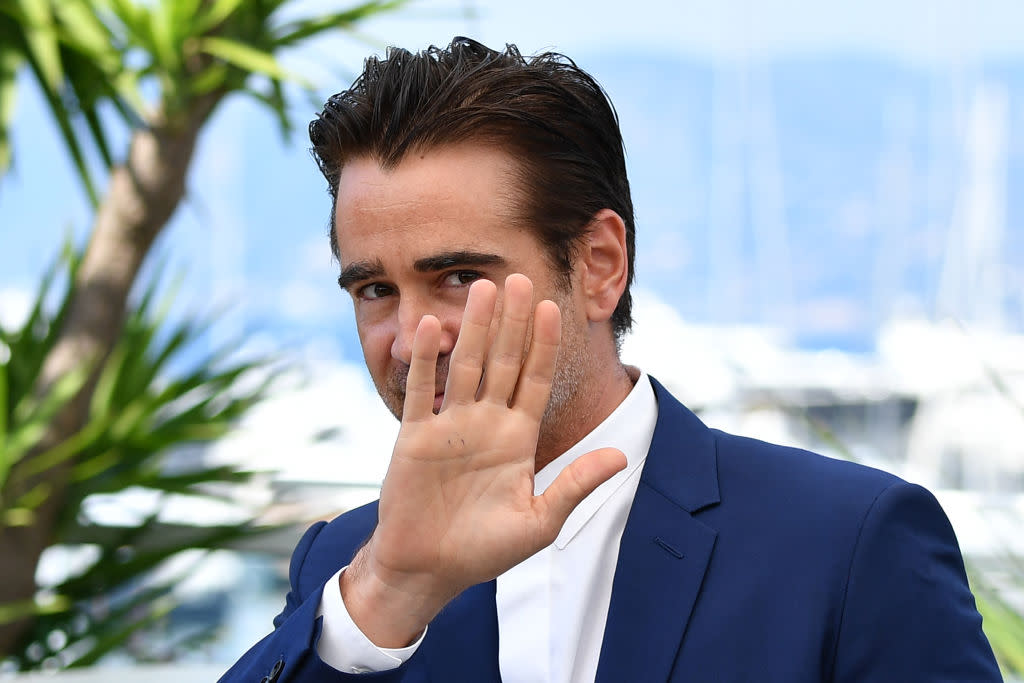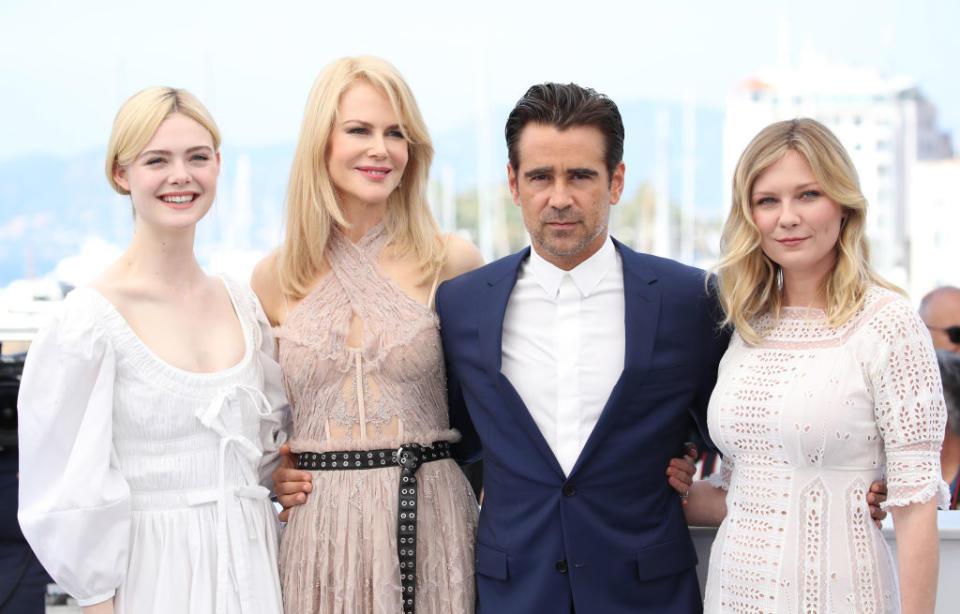As Colin Farrell returns to rehab, we look back at what he's said about addiction

Colin Farrell has been remarkably open about his struggles with addiction over the years, sometimes heartbreakingly so. Now, the actor has taken a proactive measure and checked into a rehabilitation clinic before he finds himself in a bad situation.
A source tells the Daily Mail in the U.K. that he’s recouping at the Meadows in Wickenburg, Ariz., a facility that has treated Selena Gomez, Tiger Woods, and other stars in the past.
“We all know that Colin is an addict; he’s had 12 years of sobriety,” a source told the newspaper. “He was overwhelmed for the past year, and the urges started to come back with being so busy at work, and he felt, eventually, out of control and thought maybe he should get ahead of it before he starts using again.”
Farrell himself will likely have something to say about his stay in rehab in future interviews. Meanwhile, here is some of what he has said on the subject of his addiction in the past:
His first trip to rehab was a “nightmare.”
If the story of Farrell going to rehab sounds familiar, it’s because it happened before, back in 2005, just after he filmed Miami Vice. Farrell reflected on his earlier stint in treatment in his first post-rehab interview on a BBC show in October 2008.

“I was pretty sick,” he said on Friday Night With Jonathan Ross.
The actor called the experience of getting sober a “nightmare.”
“I began to come out of the haze that I was in and had burrowed myself into so deeply,” Farrell said. “Basically, I’d been fairly drunk or high since I was 14. I was very drunk and high for 16 years, so it was a tough life change, and I was dying. I’m one of the lucky ones.”
When the trouble started.
In 2015, the Telegraph in the U.K. described the Dublin native’s relationship with substances this way: “By 14, he was a seasoned drinker; by 17, a compulsive E-head; at 18, he went to see a psychiatrist and stopped drinking for a year. By then he had been expelled from school for threatening a teacher and had moved to a bohemian quarter of Dublin to live out his fantasies in a multitude of pubs.”
Farrell then began acting and landed a role in 2000’s Tigerland, directed by St. Elmo’s Fire helmer Joel Schumacher, which was a big deal. It was his ticket to bigger roles and to fame.
“After Tigerland it was, ‘Here’s the keys to the city; here’s a few million; here’s a bag of…,” he said. “At a certain level, you are allowed to do whatever the f*** you want, in a way that is maddening.”
What rock bottom felt like.
Farrell was candid when he sat down with the Daily Mail for what they called his “first major interview for five years” in March 2010, describing what life in the throes of addiction had been like for him.
“It wasn’t hard to find 20 strangers who wanted to go back to my hotel room till 8 o’clock in the morning,” Farrell said. “I often had rooms filled with people — I had no idea who they were.
“For years and years I ran up massive hotel bills and I just lived to the full; I had what I thought was a flagrant distaste for anything that wasn’t the ‘Now’ — the immortal present,” he continued. “I gravitated to the romantic notion that if one was pursuing the endeavor of art, one couldn’t do anything better than create a world of darkness and shadow. A bit of pain. I think that I saw so much hardship in the world around me, and by drinking I created a little bit of my own version of hardship. I hold onto my moments of self-pity — ‘Poor me’ — even with all the blessings I have, like my health, my boys and this amazing job.”
He also got philosophical about how alcohol kept him hooked for so long.
“For people who drink too much, the problem isn’t really about booze. It’s about an inability to deal with life,” Farrell said. “I don’t want to get into an armchair analysis, but what giving up booze does is allow you to look at yourself through an untainted mirror for the first time.”
And what he saw was a mess.
“I could easily go through a bottle of Johnnie Walker Red Label,” he said. “I always had a massive constitution. It’s a genetic thing. I could polish off two, but then I’d be in bad shape. I loved it a lot of the time, but in the end it proved to be a charade and a delusion. I always ended up facing loneliness again.”
Why he thought he had to go to rehab the first time.
“It was weird. The last year I was drinking, a lot of people turned up in my life who’d gone through rehab,” Farrell noted in that revealing Daily Mail interview. “They exposed me to an alternative way of living just before I was ready to engage in it myself. Also, we’d just celebrated my son Jimmy’s second birthday, and I think I just decided to live.”
By then, Farrell was a dad, something that gives a lot of people purpose. There was something else too.
“I’d begun to feel my body break down and weaken in a fairly aggressive way,” he said. “I felt ill all over. I’d stay in bed for two days at a time; I was really pushing it. It was a very profound chapter in my life, a very aggressive one, and it’s one I’ve now put behind me.”

What it was like to come out of rehab.
The Horrible Bosses actor said it was “hard initially” for him to stop drinking, because it was what he had known as an adult.
“One day you’re living a certain way, and then suddenly the next day that whole system you’ve built around yourself is completely gone,” he told the Daily Mail in March 2010. “But it gets easier over time; you get used to not having that crutch.”
Farrell was excited to have come out the other side.
“I don’t see alcoholism as an affliction, or rehab as a sob story,” he noted. “I’m not imprisoned by it. It was quite the opposite. Going to rehab was an emancipation for me.”
In an interview with the Irish Independent last fall, Farrell acknowledged that keeping his demons under control made his life better on many fronts, starting with parenting sons James, now 14, and Henry, 8.
“I have yet to meet a person whose sobriety has made their life worse,” he said. “I have yet to. But I am open to it. If you find someone, please get in touch with me because I would love to have a chat with them and ask them a couple of questions. I have yet to meet a person whose sobriety didn’t make a better father, a better friend…”
He wasn’t sure if it made him a better actor, but the acclaim for his performance in 2015’s The Lobster suggests otherwise.
Read more from Yahoo! Entertainment:

